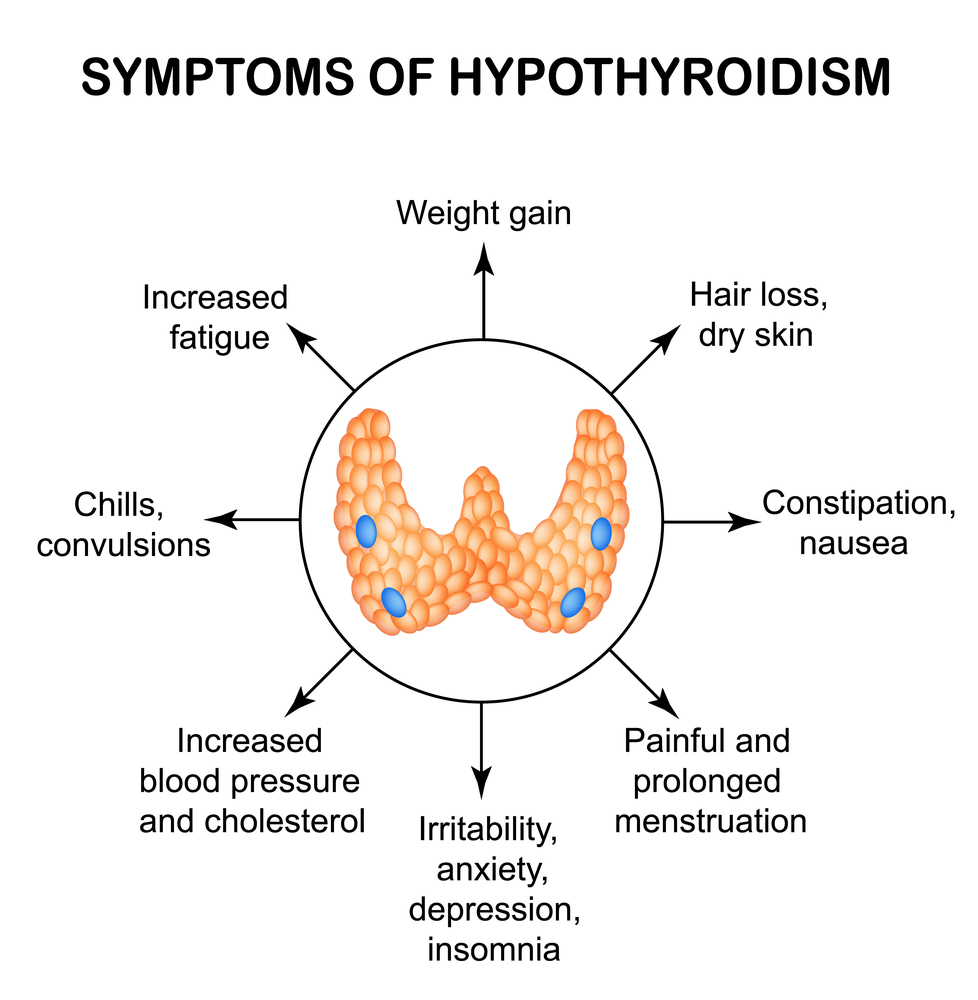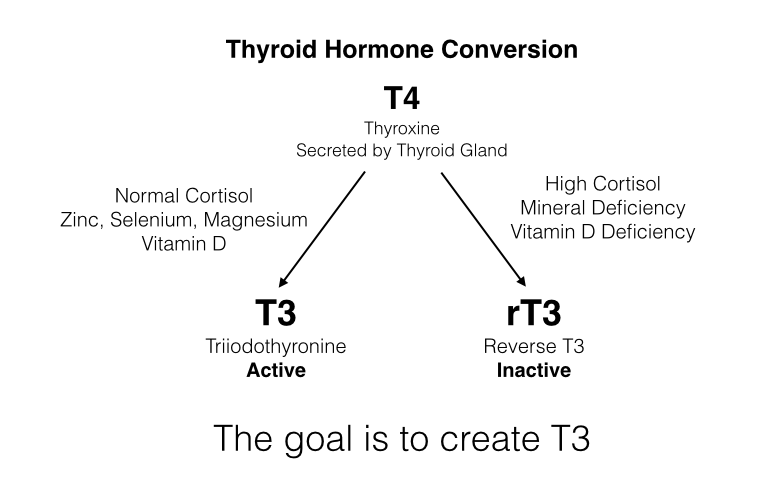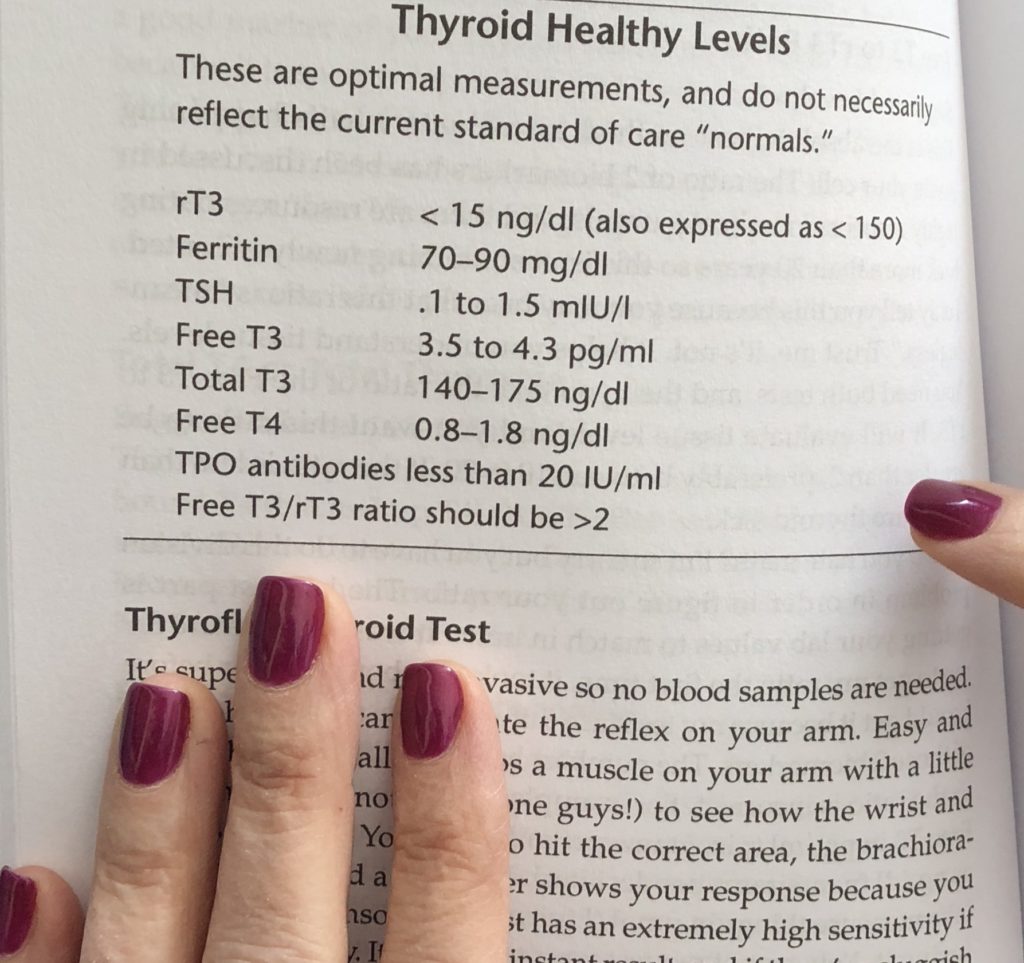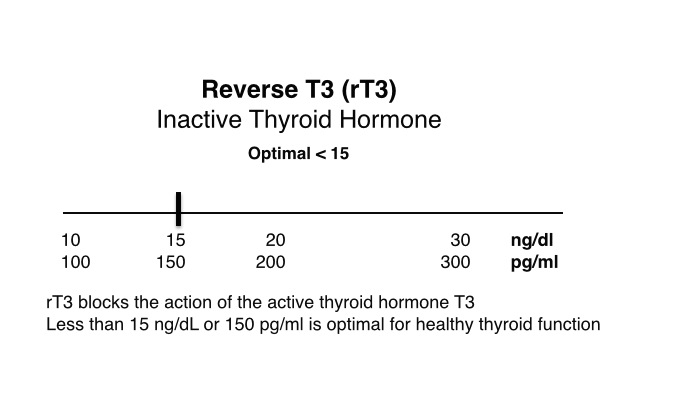What's On This Page?
ToggleDo you have chronic fatigue or the actual diagnoses of “chronic fatigue syndrome”?
There are many reasons that you might be tired and suffering with chronic fatigue syndrome (CFS). To be clear, chronic fatigue syndrome is not the kind of fatigue that goes away after you’ve rested, this is a persistent type of weakness that is inexplicable, unrelenting and disabling.
It has been pinned on Epstein-Barr (EBV) and human herpes virus 6 (HHV-6), parasites, mycotoxins, mold, adrenal dysfunction, nutrient deficiencies and much more. But new research published in March 2018 in Frontiers of Endocrinology has uncovered a rather obvious link, one that has the potential to change your life dramatically, and in a good way!
Chronic fatigue syndrome impacts about 2.5 million people in the United States who deal with it, but live in an awful state of exhaustion, brain fog, dizziness and muscle pain or weakness. Attempts to treat it with antibiotics, stimulants, sleeping pills and antidepressants have left millions of people adversely affected by the drugs and still feeling pretty dreadful, maybe marginally better but certainly not cured.
The Connection to Thyroid Disease
Scientists recently decided to check various levels of thyroid hormone aside from the TSH. Great!
Your thyroid gland is an energy regulator. Symptoms of hypothyroidism overlap with symptoms of chronic fatigue syndrome. If your thyroid gland is working well, you feel energetic and your fit and trim. If it’s functioning poorly, you’re going to feel sleepy, be overweight, cold and tired.
Hashimoto’s is the autoimmune form of thyroid disease, and is the most common cause for thyroid dysfunction. Would you like to learn more about this form of thyroid illness? I have many articles archived here, please use my search box. Also, read this popular blog post I’ve written: 8 Strategies To Reduce Histamine And Ease Hashimoto’s & Autoimmune Disorders.
The problem is that doctors do test your thyroid right away, as part of their initial screening for chronic fatigue syndrome. Your thyroid gland may very well produce enough thyroid hormone (T4) and therefore your TSH levels will be normal on a lab test. Uh oh!
They will assume your thyroid functioning is healthy or “normal” since the numbers fall into the normal reference range. That assumption is the problem! It could lead to catastrophic changes in your life and relationships because you’ll never treat the correct underlying cause. Luckily you’re reading this article which will help you understand exactly what’s happening.
You see, you can produce perfectly normal amounts of T4, and have a perfectly functioning thyroid gland, with normal TSH levels and STILL be clinically sick with a thyroid disease. It’s what I call being “thyroid sick” in my best-selling book which is available on AMAZON.
The T4 hormone isn’t converting to the biologically active healthy form called T3, and therefore you will still be very tired and show clinical signs of low thyroid (hold on to weight, lose your hair, have dry or itchy skin, be pale, dizzy and tired). I can help you. I’ve helped hundreds of thousands of people already. I helped myself for that matter because I used to have thyroid problems but not anymore.
This area of thyroid is where the researchers put their focus because they realized that symptoms of CFS were extremely similar to hypothyroidism! They surmised -and tested- what I’ve told you many times before… that is: You can have adequate levels of TSH, but be “thyroid sick” as opposed to “thyroid healthy.” Clinically, this is termed “Thyroid Resistance.” I posted a graphic below to show you more. First let me give you a little information about your thyroid gland itself, which resides close to your Adam’s apple.
Your Thyroid Gland
This gland is situated at the base of your neck and is in charge of your body temperature and fat-burning capabilities.
When thyroid is low, you are slow.
When thyroid is high you are wired.
Balance is key. The gland produces T4 hormone aka thyroxine. You have to convert the T4 to T3 in order to feel well, and burn fat. The T3 (not the T4) is what you need to feel warm, behave calmly, enjoy pretty hair and make adequate amounts of ATP (energy).
The TSH is not a good reflection of how well your thyroid works, unfortunately this is the “gold” standard test. The TSH gives you zero indication of how much active thyroid hormone you make. The TSH test does not pick up Hashimoto’s thyroiditis either.
As frustrating as this may sound to you, it’s absolutely true. I would never kid around about this.
Think of how many millions of people with CFS have suffered for years, because this TSH test is the gold standard test, used to evaluate your thyroid function! When normal, you’re sent home with an antidepressant basically! I feel confident that thyroid medication may hold the key to getting better if you have CFS.
Research from the Netherlands
A new study reveals a connection between thyroid hormones and chronic fatigue syndrome. Scientists in the Netherlands and in Spain got together and inferred that CFS could be a result of low thyroid hormone levels, independent of the TSH.
To test the theory (which has been tested before just FYI) they looked at 197 people, of which 98 had been diagnosed with CFS and 99 were not. The research study was led by Dr. Begoña Ruiz-Núñez who is a Professor at University Medical Center Groningen, (UMCG) in the Netherlands.
After comparing thyroid function, and biomarkers of inflammation, they found that the people with CFS had dramatically lower levels of important thyroid hormones, including triiodothyronine (T3) and thyroxine (T4) but interestingly, they still had normal TSH levels.
This means that your TSH could appear normal on a lab test, but your T3 could be lower due to poor activation (which means that the T4 isn’t converting to T3 fast enough). This means that you would have all the symptoms of low thyroid (and it will not be detected if the doctor just looks at your TSH levels) and let me remind you, this is what most do since it’s the “gold standard” test… they just look at TSH levels and nothing more!
There are many reasons for poor T3 activation, for example drinking from some plastic water bottles can do it, so can The Pill as well as a problem with your transporters, the part of your metabolic pathway that transports the thyroid hormone INTO the cell. That’s where you want thyroid hormone, inside the cell, not loitering out in the bloodstream. It’s all explained in my paperback book, Thyroid Healthy, which most of you have. If you don’t CLICK HERE to buy a copy. I also have a few more copies of that beautiful magazine which you might prefer, CLICK HERE to learn more about that.
The Iodine Connection
The people with CFS had a lower iodine status (using a urine collection test) as compared with their healthy non-fatigued counterparts. If you don’t know, iodine is used to make thyroid hormone so a low iodine status means that there’s thyroid deficiency, which again equates to all the symptoms of low thyroid as well as CFS. If you have a spare 5 minutes, read my article on iodine by CLICKING HERE. It’s entitled, Why Salt is Not Enough.
Iodine deficiency is a common cause of hypothyroidism, especially in people who are simultaneously selenium deficient. I’ve put a graphic here to help you see what the best food sources are. Seaweed and dulse contains some iodine as well.

What’s Puzzling to Them Makes Total Sense to Me
People with chronic fatigue syndrome have some systemic inflammation which is not a surprise. You see this in people with chronic illnesses. The body’s natural response to chronic illness and inflammation is to make more reverse T3 (rT3) instead of active T3. This rT3 is kind of like your hibernation hormone.
It puts you to sleep. It’s not biologically active, it just sits on your cells receptors and occupies the receptor site such that your active (healthy) form of thyroid hormone (T3) can’t get on there. It’s like a pit bull in the doorway. Watch my video by CLICKING HERE.
Triiodothyronine is T3 (biologically active)
Thyroxine is T4 (you produce T4, it’s also Levothyroxine/Synthroid/Levoxyl)
The research team is spot on when they say that people with CFS are producing more rT3 from the T4 (instead of active T3). This also explains why T3 levels are substantially lower than they should be. It’s because the T4 is converting to rT3, not T4. See my graph below which is from my book, Thyroid Healthy. If you wish to post my graphics (or even this article), keep in mind this is copyrighted, so please submit your request by emailing customerservice@suzycohen.com.

So if the goal is to create more T3, which is biologically active, and the people with CFS are making rT3, that could be one root cause that never gets addressed, unless your physician reads my article today.
This is huge in terms of treatment! Instead of antidepressants and pain killers, sleeping pills and stimulants…. I suggest some thyroid hormone, in particular T3 as in Compounded T3 or Cytomel.
My recommendation is NOT use T4 drugs (ie Levothyroxine/Synthroid) because those drugs are more likely to produce additional rT3 if you’ve been chronically ill.
Critical Information for Sufferers with Chronic Fatigue Syndrome
This is critical information for people with chronic fatigue syndrome to know: It means that people with CFS might be suffering from an underlying thyroid problem: Their rT3 is elevated so they are not getting the normal levels of natural thyroid hormone that would otherwise make them feel good.
They’re dealing with high levels of a “hibernation” hormone, all the while their TSH levels rae normal. And again, let me remind you that TSH is what 90% physicians test for as their gold standard evaluation for thyroid health.
Now, one thing real quick rT3 is not bad. It’s okay that you make this. You need some rT3, but elevated levels are the negative consequence of chronic stress and many other deficiencies that I cover in my book Thyroid Healthy. It’s too deep to get into here.
These observations shed insight into the etiology of Chronic Fatigue Syndrome. Instead of chasing down and attempting to kill all kinds of viruses, parasites and fungus (along with your precious gut flora!) I think the focus should be on your thyroid function.
More specifically, ton’t let physicians dismiss you if your TSH is normal.
You’ll want them to test your T4, T3 and rT3 as well as antibodies to TPO.
Take a look at what I suggest for normal levels because what I suggest is different than what your doctor might suggest. See page 52 from my book if you have it… and if you don’t, I’ve taken a photograph of page 52 for you here, see below. Connecting the dots between chronic fatigue syndrome and low T3 (and high rT3) certainly sheds light on a new treatment for this extremely common and debilitating disease.

Let the Suffering Stop!
Chronic fatigue syndrome is an extraordinarly common problem that includes long spells of muscle weakness, shortness of breath, brain fog, fatigue and depression. Its diagnosis is predominantly based on how you feel and all of your symptoms, not on a lab test. Physical examination doesn’t usually show anything, in fact many people with CFS look beautiful and normal because the ‘pain and suffering’ is taking place on the inside. The suffering of CFS is extremely similar to hypothyroidism.
About Reverse T3
Please note that rT3 is not bad. It’s okay to have some. You need some, but elevated levels are the negative consequence of chronic stress and many other deficiencies. See the graphic above, for example, vitamin D deficiency is a common cause.

The folks with CFS happened to produce higher amounts of reverse T3, which sadly is like your hibernation hormone. It slows you down, it essentially puts you to sleep and makes you feel more tired.
rT3 is not biologically active like T3
To read more about this go to my website CLICK HERE to read my other article entitled, Measure Reverse T3 and Get Thyroid Healthy.
This critical research means that people with CFS are likely suffering from an underlying thyroid problem and could benefit dramatically from simple affordable medications like Compounded T3, Cytomel by Pfizer, Liothyronine, a man-made form of T3, or other forms of T3 medication that your physician suggests. None of these are over-the-counter, they all require prescription. Just FYI, the T4 drugs like Levothyroxine, Levoxyl or Synthroid have the potential to exacerbate the problem due to higher rT3 formation which could be due to certain insuffiencies you have (see my graphic above).
Always ask your doctor what’s right for you. I do not recommend self-treating the thyroid, but with a doctor’s supervision, targeted supplements designed for your thyroid can have a positive impact.

Suzy Cohen, has been a licensed pharmacist for over 30 years and believes the best approach to chronic illness is a combination of natural medicine and conventional. She founded her own dietary supplement company specializing in custom-formulas, some of which have patents. With a special focus on functional medicine, thyroid health and drug nutrient depletion, Suzy is the author of several related books including Thyroid Healthy, Drug Muggers, Diabetes Without Drugs, and a nationally syndicated column.

